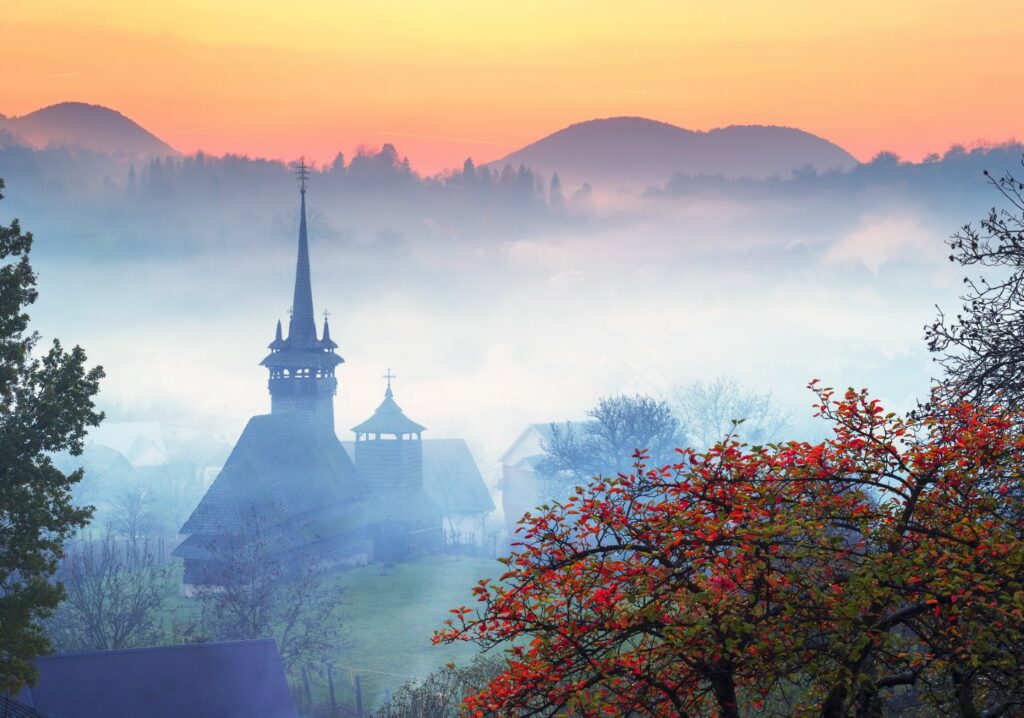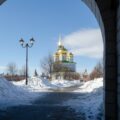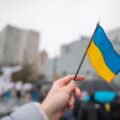Church and politics in Ukraine
Church and politics in Ukraine
How did the granting of independence to the new church in Ukraine cause the ongoing crisis in politics and the Orthodox Church?
How did the problem arise?
Orthodox Christianity is the largest religion in Ukraine, with 78% of citizens describing themselves as followers of the faith.[1] In December 2018, a significant change to Orthodoxy was made when Ecumenical Patriarch Bartholomew, the head of the entire Orthodox Church, granted autocephaly for the new Orthodox Church in Ukraine. In that way, he recognised the legitimacy of the new Orthodox Church of Ukraine (OCU).[2] To grant autocephaly means to give the highest degree of independence that an Orthodox church can have. This decision was welcomed by the then Ukrainian President, Petro Poroshenko, who congratulated the OCU on its establishment and independence.[3] [4]
However, this event caused controversy throughout the Orthodox world because prior to declaring its independence, Ukraine’s Orthodox believers already belonged to another church, the Ukrainian Orthodox Church (UOC).[5] This church has historically been under the spiritual jurisdiction of the Russian Orthodox Church (ROC).[6] Therefore, two Orthodox churches now exist in Ukraine. This has led to a debate over which church is legitimate and has created a series of organisational and political problems. Crucially, the Orthodox Church has not historically faced this type of situation. Whilst multiple Protestant churches often exist within one state, this is usually not the case for two Orthodox churches. This split has forced Orthodox churches beyond Ukraine to choose sides and has had a knock-on effect for the political as well as religious divides in the region.
What does the term autocephaly actually mean in the Orthodox faith?
Before examining the tension between the two Orthodox churches in Ukraine, it is important to understand the concept of autocephaly and how it differs from other forms of Christianity in Europe. Unlike the Catholic Church, headed by a pope who has inviolable authority, the Orthodox Church represents a union of independent churches.[7] The Ecumenical Patriarch, who sits in Istanbul, is recognised by all Orthodox churches as the first among equals.[8] [9]
Orthodox churches, opposite from Catholicism, operate in different languages and do not have a central leader.[10] Therefore, each Orthodox Church is a separate institution depending on the nation, for example Greece, Serbia, or Bulgaria.[11] To acquire independence, a part of one Orthodox Church must seek independence from the so-called mother church of which it is currently a part. If that mother church wants to grant independence (autocephaly), then she gives that without the interference of other churches.[12] The recent developments in Ukraine directly contradict the traditions of the Orthodox faith, because the Ecumenical patriarch interfered into the ROC’s territory.
The genesis of the church-political problem in Ukraine
In order to understand why Ukraine is so important to the ROC, it is crucial to understand the history of the faith in the two nations. Russians were baptised for the first time in the current Ukrainian capital of Kiev back in 994, and the city has long been seen as the cradle of Russian Christianity.[13] For centuries, the Ukrainian Orthodox faith has been considered as a part of the ROC.[14]
Therefore, Patriarch Bartholomew’s 2018 decision to form a new Orthodox Church in Ukraine broke with hundreds of years of tradition. Crucially, this decision was made without an invitation from the Russian Patriarch.[15] With its political and symbolic significance clear, this decision was celebrated by Ukrainian politicians with President Poroshenko immediately congratulating the OCU, thanking Patriarch Bartholomew, and rejoicing that they were no longer under Moscow’s domination.[16] After this event, the ROC cut off all communication with the Ecumenical Patriarchate as a sign of protest.[17]
Ukraine triggers a split
The situation in Ukraine has divided different national branches of the Orthodox faith in Europe. The Bulgarian, Serbian, Moldovan, and Estonian Orthodox churches refused to recognise the newly-formed OCU.[18] On the other hand, Greek, Cypriot, and Alexandrian churches have publicly recognised its legitimacy.[19]
As for Russia, the Moscow Patriarchate has accused the Ecumenical Patriarch of only having recognised the new church in Ukraine due to political pressure from the United States.[20] The Russian Metropolitan has alleged that the attempt to form a new Ukrainian church is part of a plan from the United States to destroy the ROC.[21]
A new front of international tensions?
The controversy over which Ukrainian church has legitimacy has also become a part of the US-Russia relations. US Secretary of State at the time, Mike Pompeo, stated that the US supported religious freedoms as well as the freedom of members of religious communities, including the OCU.[22] The current president of the US, Joe Biden, had a meeting with UOC representatives in 2018 and expressed his open support for the establishment of an independent church in Ukraine.[23] However, the Russian Minister of Foreign Affairs, Sergei Lavrov, responded to this by stating that the establishment of the non-canonical OCU was a direct provocation supported by Washington.[24] This was added to by Russian President Vladimir Putin who stated that the OCU had been formed with the purpose of creating a national division between Moscow and Kiev on the religious level.[25] Three years have passed since the declaration of independence, but the situation has remained unchanged. No more Orthodox churches have recognised the OCU, and the political positions of the relevant countries remain the same.
Is there a solution in sight?
For now, there have been no expressions of a desire for negotiations between the Moscow and Ecumencial Patriarchs. This means that there are still two Orthodox churches competing for legitimacy in Ukraine.
In addition, this unresolved question has further emphasised the rivalry between the Moscow and Ecumenical Patriarchates,[26] as well as pro-Russian and pro-European Ukrainians. The emergence of the OCU is a reflection of the complex, and potentially controversial, relationship between the Church and politics in the Orthodox faith. It is too early to know whether the problem in Ukraine will set new norms in the functioning of the Orthodox faith and perhaps leave a permanent impact on the church and politics, but it is sure to be an issue that is worth further investigation in the future.
Want to learn more about similar topics? Go to the EARS Dashboard and receive weekly updates.
Sources
[1] Split between Ukrainian, Russian churches shows political importance of Orthodox Christianity
[2] Prva godina nezavisnosti Pravoslavne crkve Ukrajine
[3] The speech by the President Poroshenko on the result of the Unification Synod
[4] Православна Церква України
[6] Українска Православна Церква
[7] Jedinstvo Pravoslavne crkve na ispitu
[8] Carigradski patrijarh priznao autokefalnost Ukrajinske crkve
[9] Defender of the Faith? How Ukraine’s Orthodox split threatens Russia
[10] Jedinstvo Pravoslavne crkve na ispitu
[11] Defender of the faith? How Ukraine’s Orthodox split threatens Russia
[12] Rojters: Porošenka bi nova crkva mogla da pogura u kampanji
[13] Хронологія історії Української Православної Церкви
[14] Хронологія історії Української Православної Церкви
[15] Speech by President Poroshenko on the results of the Unification Synod
[16] Speech by President Poroshenko on the results of the Unification Synod
[17] Митрополит Иларион: Константинополь посягает на чужую собственность
[18] Пародија на аутокефалност: Како су у свету реаговали на расколнички „сабор“ у Украјини
[19] Analysis of the attitude of the Local Churches to the “OCU” or, Why the “Greek world” cracked at the seams
[20] РПЦ обвинила патриарха Варфоломея в работе на США
[21] Russian Orthodox leaders react furiously to push for independent Ukrainian Church
[22] Move Towards Ukrainian Autocephaly
[23] Joe Biden speaks of importance of creating Single Local Church in Ukraine
[24] Voice of America: Moscow calls independent Ukrainian church US …
[25] Prva godina nezavisnosti Pravoslavne crkve Ukrajine
[26] Раскол у православној цркви појачао тензије између Русије и Украјине






